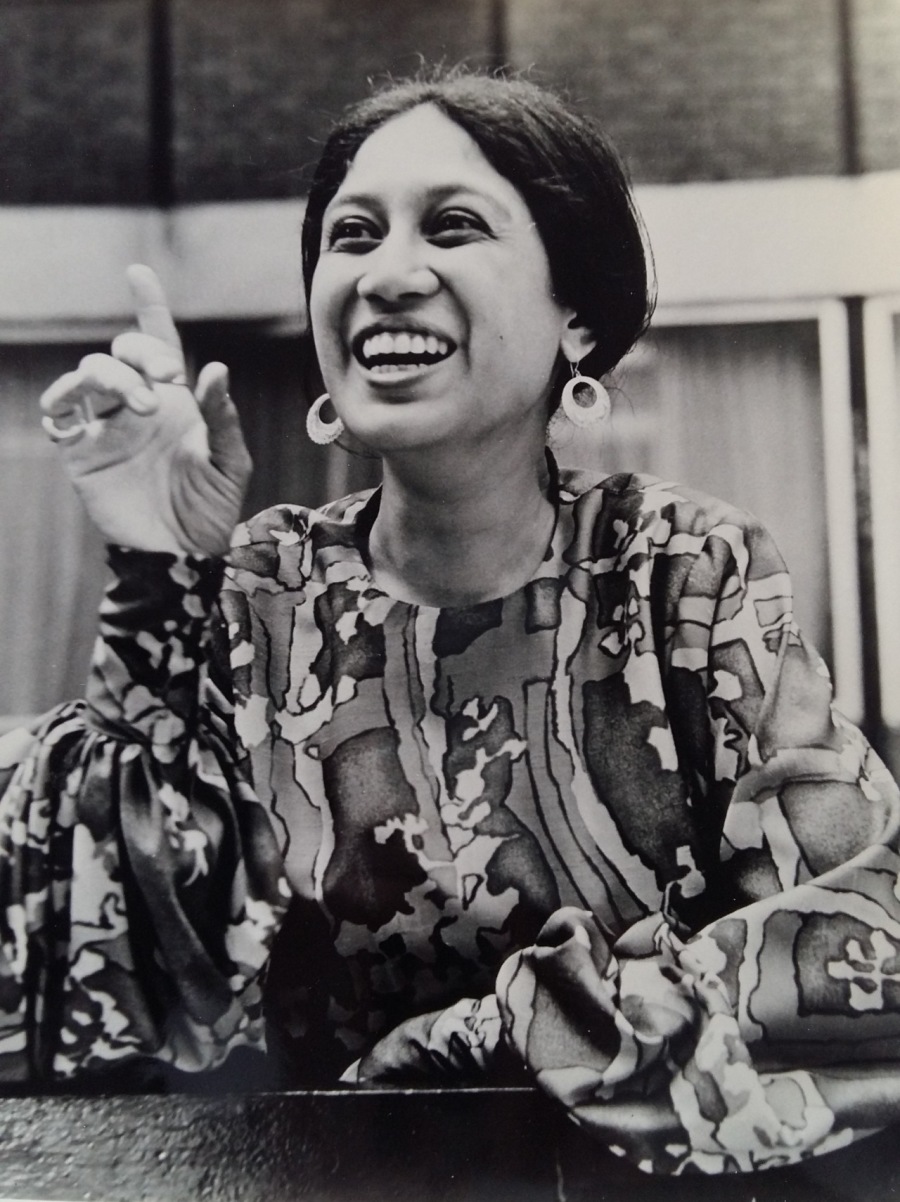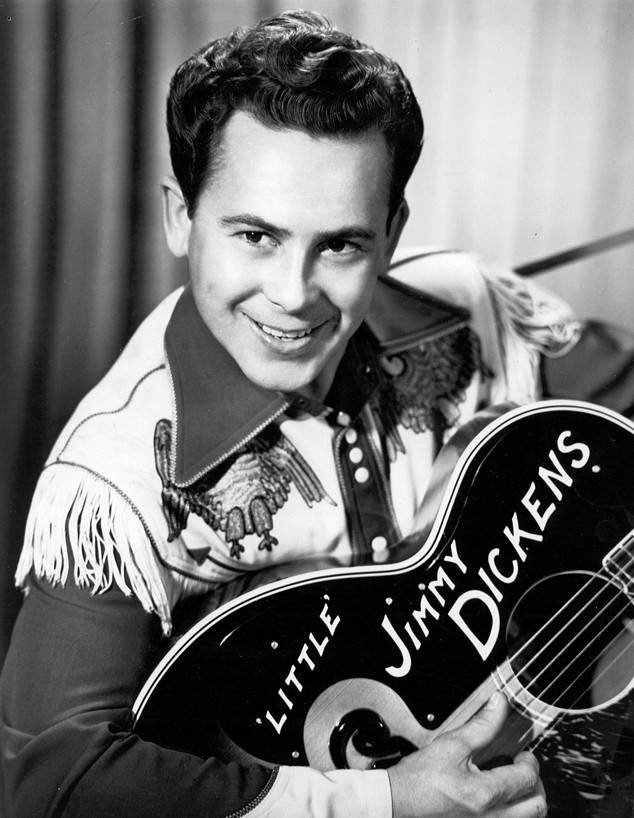MUSICAL DECADES - 1950s - Rockabilly

Rockabilly is one of the earliest styles of rock and roll music, dating back to the early 1950s in the United States, especially the South. As a genre it blends the sound of Western musical styles such as country with that of rhythm and blues, leading to what is considered "classic" rock and roll. Some have also described it as a blend of bluegrass with rock and roll. The term "rockabilly" itself is comes from "rock" (from "rock 'n' roll") and "hillbilly", the latter a reference to country music (often called "hillbilly music" in the 1940s and 1950s) that contributed strongly to the style.
Other important influences on rockabilly include western swing, boogie-woogie, jump blues, and electric blues. Defining features of the rockabilly sound included strong rhythms, vocal twangs, and common use of the tape echo; but progressive addition of different instruments and vocal harmonies led to its dilution.
In 1951 and 1952 the Burnettes (Johnny and Dorsey) and Paul Burlison played around Memphis and established a reputation for wild music. According to Burlison, "... when we started playing in 1951, we played an uptempo-style country beat with gospel, blues, and a little swing mixed in." They wrote "Rock Billy Boogie," named after Johnny Burnette's new baby boy Rocky and Dorsey's new son Billy, who were both born in 1953 but they did not record the song until 1957.
The trio released "Train Kept A-Rollin'" in 1956, listed by Rolling Stone magazine as one of the top 500 rock songs of all time. Many consider this 1956 recording to be the first intentional use of a distortion guitar on a rock song, which was played by lead guitarist Paul Burlison.
The original version of the twelve-bar blues song, “Rocket 88” was credited to Jackie Brenston (Ike Turner's saxophonist) and his Delta Cats, which hit number one on the R&B charts. The band was actually 19-year-old Ike Turner and his Kings of Rhythm band, who rehearsed at the Riverside Hotel in Clarksdale, Mississippi. Brenston sang the lead vocal. The song was a hymn of praise to the joys of the Oldsmobile "Rocket 88" automobile which had recently been introduced.
Distortion was used on "Rocket 88". The legend of how the sound came about says that guitarist Willy Kizart's amplifier was damaged on Highway 61 when the band was driving from Mississippi to Memphis, Tennessee. An attempt was made to hold the cone in place by stuffing the amplifier with wadded newspapers, which unintentionally created a distorted sound. Sun Record Producer Sam Phillips liked the sound and used it on the record.
![SO YOUIREALL led
1K) OLL DO!
LUE] es EMORY L
HAVE Be 5- 7)
LATE EN
www. CY PT rea Lr ee PTOI](https://contents.bebee.com/users/id/13066572/article/musical-decades-1950s-rockabilly/61e0f915.jpg)
Nobody was sure what to call Presley's music, so Elvis was described as "The Hillbilly Cat" and "King of Western Bop." Over the next year, Elvis would record four more singles for Sun. Rockabilly recorded by artists prior to Presley can be described as being in the long-standing country style of Rockabilly. Presley's recordings are described by some as quintessential rockabilly for their true union of country and Rhythm and Blues, which can be described as the true realization of the Rockabilly genre.
In 1951, a western swing bandleader named Bill Haley recorded a version of "Rocket 88" with his group, the Saddlemen. Haley and his band mates crafted a rockabilly sound during this period. It was followed by versions of "Rock the Joint" in 1952, and original works such as "Real Rock Drive" and "Crazy Man, Crazy", the latter of which reached number 12 on the American Billboard chart in 1953.
On April 12, 1954, Haley with his band (now known as Bill Haley and His Comets) recorded "Rock Around the Clock" for Decca Records of New York City. When first released in May 1954, "Rock Around the Clock" made the charts for one week at number 23, and sold 75,000 copies. A year later, it was featured in the film, Blackboard Jungle, and soon afterwards it was topping charts all over the world and opening up a new genre of entertainment. "Rock Around the Clock" hit number. 1, held that position for eight weeks, and was the number two song on the Billboard Hot 100 chart for 1955. The recording was, until the late 1990s, recognized by Guinness World Records as having the highest sales claim for a pop vinyl recording, with an "unaudited" claim of 25 million copies sold.
The Perkins Brothers Band, featuring both Carl and Jay on lead vocals, quickly established themselves as the hottest band on the cutthroat, "get-hot-or-go-home" Jackson, Tennessee honky-tonk circuit. Most of their requests were for hillbilly songs that were delivered as jived up versions—classic Hank Williams standards infused with a faster rhythm.
It was here that Carl Perkins started composing his first songs with an eye toward the future. Watching the dance floor at all times for a reaction, working out a more rhythmically driving style of music that was neither country nor blues, but had elements of both, Perkins kept reshaping these loosely structured songs until he had a completed composition, which would then be finally put to paper. Carl was already sending demos to New York record companies, who kept rejecting him, sometimes explaining that this strange new style of country with a pronounced rhythm fit no current commercial trend. That would change in 1955 after recording the song “Blue Suede Shoes”. Later made more famous by Elvis Presley, Perkins' original version was an early rock 'n' roll standard.
Perkins' "Blue Suede Shoes" sold 20,000 records a day at one point, and it was the first million-selling country song to cross over to both rhythm and blues and pop charts.
Bill Flagg (born in 1934) is an American country and rockabilly singer, who was the first to use the term, rockabilly. Maine native, and Connecticut resident, he began using the term for his combination of rock 'n' roll and hillbilly music as early as 1953. Flagg began his career in radio as a "singing cowboy" calling himself The Lone Pine Cowboy. He then moved to bluegrass before he and his friend, John Sligar, changed to rockabilly in 1954.
Flagg cut several songs for Tetra Records in 1956 and 1957. "Go Cat Go" went into the National Billboard charts in 1956, and his "Guitar Rock" is cited as classic rockabilly.
This ends Musical Decades for this week. Thanks for listening and I hope to see you here next time.
(The information used in this post is from Wikipedia.)

Dominique "Nik" Petersen is an aficionado of "oldies" music and the author of Dr. Hook and Me: A Fan's Journal/Scrapbook. Read about it and her other books at the website:
"""
Articles from Dominique 🐝 Petersen
View blog
We've taken a look at how girls saw their boyfriends back in the 1960s (see Part 1 and Part 2). Perh ...

Norma Cecilia Tanega (born January 30, 1939) is an American folk and pop singer-songwriter, painter, ...

James Cecil Dickens (December 19, 1920 – January 2, 2015), better known by his stage name, Little Ji ...
Related professionals
You may be interested in these jobs
-
administrative assistant
Found in: Talent CA 2 C2 - 1 day ago
AIRE ONE HEATING & COOLING Kitchener, CanadaEducation: · Expérience: · Education · Secondary (high) school graduation certificate · Tasks · Arrange and co-ordinate seminars, conferences, etc. · Supervise other workers · Establish and implement policies and procedures · Assign, co-ordinate and review projects and programs ...
-
VP of Finance
Found in: Talent CA C2 - 1 day ago
Musora Media Fraser Valley, Canada Full timeHey I'm Amy and I'm looking for our first VP of Finance or CFO to lead our incredible Finance Team · You'll bring at least ten (10) years of mid-senior level experience in a Finance role, working directly with C-Suite and Leadership Teams. This is a fantastic opportunity for you ...
-

Instructor - Architectural Technologies
Found in: Talent CA C2 - 1 day ago
Saskatchewan Polytechnic Saskatchewan, Canada Full timeJob Duties/Qualifications, Skills and Abilities(QSA) · Job Duties Job Duties Provide instruction to students enrolled in the Architectural Technologies program. · Design and implement a student-centered learning environment using an outcome-based approach in either a face-to-face ...


Comments
Dominique 🐝 Petersen
6 years ago #5
Dominique 🐝 Petersen
6 years ago #4
Dominique 🐝 Petersen
6 years ago #3
Pedro 🐝 Casanova
6 years ago #2
Dominique 🐝 Petersen
6 years ago #1